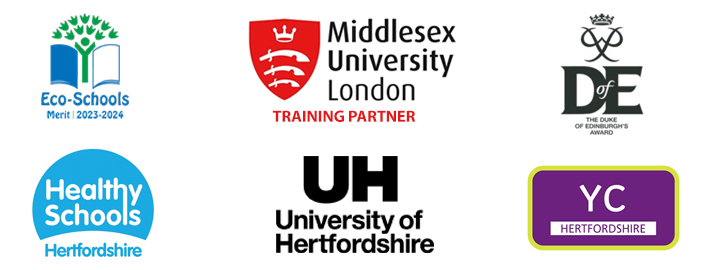Geography
The aim of the geography course is to provide the students with a broad understanding of the world and how it relates to them. We encourage them to be curious and ask questions to develop an enquiring mind. We aim to develop their ability to critically evaluate information and data, giving them a platform to develop skills such as observing, collecting, analysing, mapping and communicating geographical information, allowing the students to apply them across other subjects at school and beyond education.
Head of department: Mr H Fraser
Email: HFraser@stanborough.herts.sch.uk
What will students study?
In KS3:
As of 2020, Stanborough School have followed a 3 year key stage 3 that provides a rich and rewarding learning journey for all pupils at the school. Year 7 ensures that pupils are equipped with skills and knowledge vital to understanding geography and the world around them. These skills are practised and built up over time throughout year 7, year 8 and finally year 9 when the skills that have been developed are at a standard expected if they opt to take geography as one of their options.
Subjects covered over the three year course include:
- What is geography?
- Weather and climate
- Rivers
- Population and settlement
- The rise of China
- The economy
- Natural resources and climate change
- Development
- Africa
- Glaciation
- Coasts
- Hazards
- The geography of conflict
- The Middle East
In KS4:
Students who choose to do geography for GCSE will follow the AQA ‘A’ Geography specification. Over the course of Years 10 -11 they will study geographical concepts and ideas associated with the following titles:
- Living world
- Natural hazards
- Physical landscapes
- Urban issues
- Changing economic world
- Resource management
As always a variety of geographical skills will be practised and tested throughout each unit of work. Students will also have to carry out a geographical investigation and write up a piece of coursework and this will form the basis of their third exam. It is therefore important that they are able to describe, explain and justify every step of the investigation that they carry out.
In KS5:
Students studying A Level Geography will again study the AQA ‘A’ Geography specification. This course will require them to increase their depth and breadth of geographical understanding.
They will study:
- The water & carbon cycles
- Glacial systems and landscapes
- Hazards
- Global systems and global governance
- Changing places
- Population and the environment
As with Key Stage 4 there will be a residential field trip between Years 12 and 13 where the students will have to identify a geographical enquiry or question, devise and carry out a methodology to investigate that question and write it up in a 3-4,000 word report which will be marked in school and moderated by the exam board.
How can I support my child in this subject?
Where possible, ensure your child has access to a reasonably up to date atlas and where possible, an Ordinance Survey (OS) map of the local area. There are also a number of apps that can be downloaded for phones that are useful, including the Wunderground Weather App, Survey 123 and any stop motion video recording app. We make use of the Progress in Geography Key Stage 3 text book and the Fantastic children’s illustrated version of Tim Marshall’s “Prisoners of geography” and both the Hodder and Oxford textbooks that support the AQA GCSE Geography course. We also make use of the Oxford and Hodder Textbooks for A-level, whilst the original version of Prisoners of Geography is also worth reading.
You can also encourage your child to take an interest in the major news stories of the day and encourage them to read a short news article a day from a good quality news source. Asking them if they can make connections to the subject they have studies will help them relate what they are studying in class to the world around them. Try and encourage your child to complete pieces of work in their books rather than by typing the work, as this reduces the risk of them copying and pasting from websites. You can also check that sufficient effort has gone into the work and they have understood the homework task they have been set. You can also encourage them to listen to geography themed podcasts from places such as the National Geographic, but above all else encourage them to read. There is a wealth of geographical knowledge and vocabulary to be gained from fiction and non-fiction.
What equipment does my child need in this subject?
The equipment needed for the geography can be found on the uniform section of the Stanborough School Website.
Celebrating successes in this subject
During term time reward points are given for good work, effort, improvement and presentation. End of term certificates are also issued for these categories where they have been sustained.
Extra-Curricular Activities and Visits
Where practicable, we will try and get all students out of the classroom. This includes local visits and visits further afield. Where extra-curricular activities do take place parents will be contacted by the school should they wish their child to attend. Trips that have taken place in the past include locally to Welwyn Garden City, regionally to London to visit the Natural History Museum and internationally to Iceland.
Fieldtrips may take place, however the nature of these trips will depend on factors such as the number of students taking the course.
The geography team are very approachable, and a member of the team will be available from 1500-1600 on Tuesdays (day may sometimes change) in the humanities department to support GCSE students with topics they find challenging. However, if any student is finding the work challenging, they are of course welcome to ask for help.





